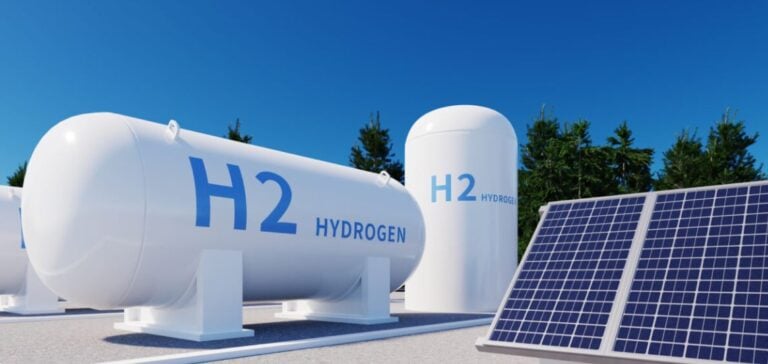Europe’s energy transition is gathering pace, with ambitious targets for low-carbon hydrogen. The REPowerEU plan, adopted in May 2022, initially targeted domestic production of 10 million tonnes of hydrogen, supplemented by 6 to 10 million tonnes imported by 2030. However, the targets have been reduced to 3 million tonnes, in line with more realistic forecasts for domestic renewable production. This reduction highlights the importance of diversifying hydrogen production sources.
The Limits of Renewable Hydrogen
Producing hydrogen from renewable sources presents logistical and economic challenges. The transport and energy losses associated with imports, particularly from countries in the Global South, raise questions about Europe’ s energy sovereignty. What’s more, these imports risk exploiting regions suffering from energy poverty, creating an undesirable dependency.
The Role of Nuclear Power in Hydrogen Production
In its recent report, Nucleareurope points out that nuclear power could fill the gap left by reductions in renewable hydrogen production targets. A key advantage of hydrogen produced by nuclear power plants is the ability to maximize the load factor of installed electrolyzers, reaching up to 8,000 hours per year. This would enable continuous, stable production of low-carbon hydrogen, improving the profitability and lifespan of installations.
Advantages and opportunities of nuclear power
A 1000MWe nuclear reactor, with a capacity factor of over 90%, could produce around 0.16 million tonnes of low-carbon hydrogen per year, providing end-users with an uninterrupted source of supply. This efficiency could be increased by a further 20% with high-temperature electrolyzers using nuclear steam.
Diversifying for greater energy sovereignty
To support domestic hydrogen production, Nucleareurope recommends a diversified approach that recognizes the potential of all net-zero technologies. Focusing on energy sovereignty, developing policies to foster the growth of domestic hydrogen industries, and investing strategically in infrastructure are essential steps. In addition, resources must be allocated to research and development to improve the efficiency and cost-effectiveness of hydrogen production technologies, including nuclear-based methods.
Economic and industrial stakes
Domestic hydrogen production could solve several of the EU’s challenges in terms of energy security, environmental sustainability and economic competitiveness. Yves Desbazeille, Managing Director of Nucleareurope, stresses the importance of reimagining the role of hydrogen as a clean, versatile energy carrier to transform the energy system. This includes reindustrialization and job creation, strengthening the European economy. Integrating hydrogen produced by nuclear power into the European energy mix could be a strategic solution for achieving carbon neutrality by 2050. By diversifying hydrogen production sources, Europe can strengthen its energy sovereignty while promoting clean, sustainable technologies. The Nucleareurope report stresses that the combination of renewable and nuclear hydrogen production is crucial to a successful energy transition.





















